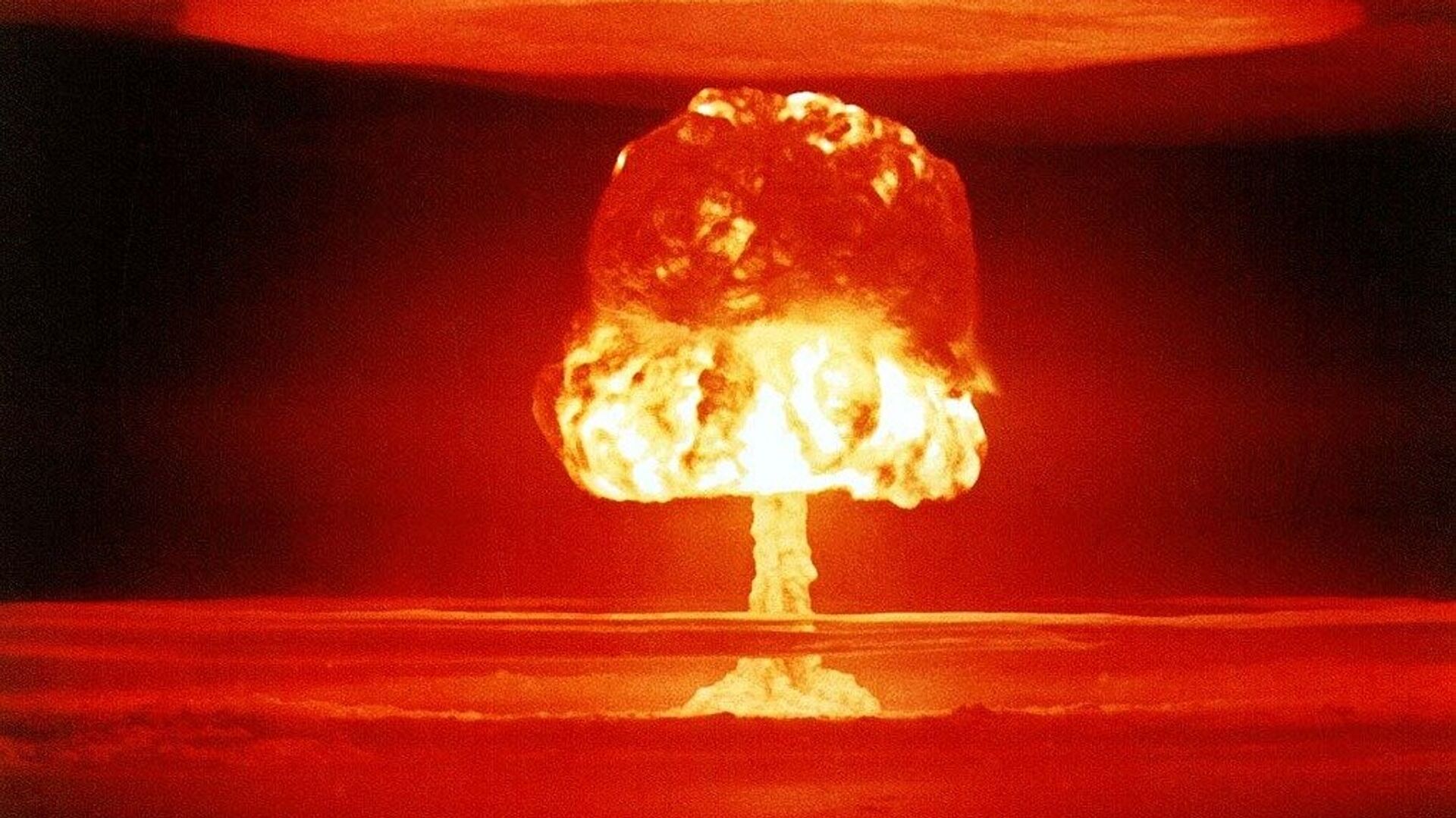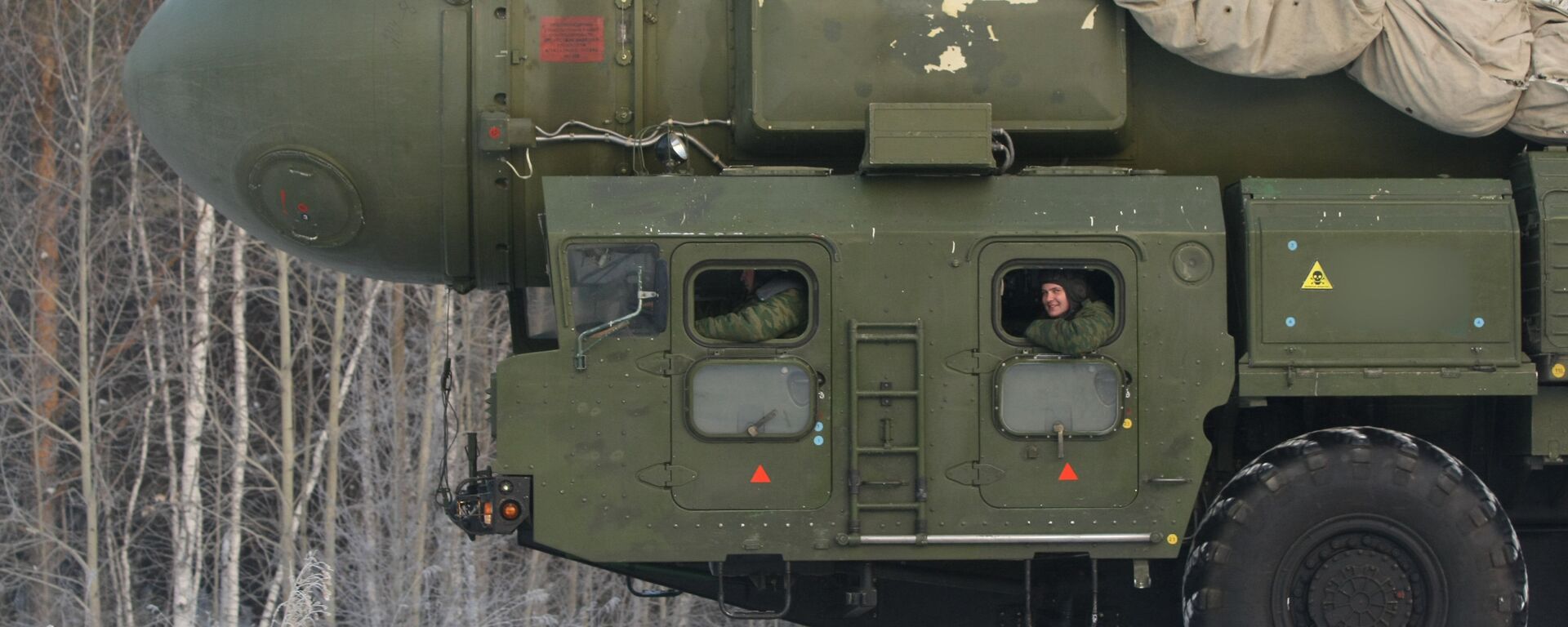https://sputnikglobe.com/20231209/japan-advised-to-go-nuclear-as-us-umbrella-frayed-irreparably-1115493637.html
Japan Advised to Go Nuclear as US 'Umbrella' 'Frayed Irreparably'
Japan Advised to Go Nuclear as US 'Umbrella' 'Frayed Irreparably'
Sputnik International
Japan, which has embarked upon an unprecedented military build-up of late, is at “a historic crossroads,” and must develop nuclear weapons, former editor for The New York Times Barry Gewen has argued.
2023-12-09T08:19+0000
2023-12-09T08:19+0000
2023-12-09T08:25+0000
world
japan
us
tokyo
washington
fumio kishida
military & intelligence
nato
nuclear
nuclear weapons
https://cdn1.img.sputnikglobe.com/img/106306/79/1063067909_0:354:1019:927_1920x0_80_0_0_6619ab410f5eacf4cf8521786de17836.jpg
Japan, which has embarked on an unprecedented military build-up of late, is at “a historic crossroads,” and must develop nuclear weapons, former editor for The New York Times Barry Gewen has argued.Citing the “current geopolitical situation in Asia,” and the “present disarray in Washington,” Japan really does not have any other choice, he wrote in The National Interest.According to the author, the circumstances that led Tokyo after its defeat in World War II to officially pledge that its armed forces' role would be purely one of self-defense, "no longer exist,” he argued in the outlet. At the same time, the American “nuclear umbrella” that previously offered Japan military protection was described as “increasingly frayed, probably irreparably.”Next, the report rationalized the need to set up a new nuclear state on Russia’s border, regurgitating the traditional US-fueled claims of Japan being threatened by neighboring countries. An increasingly assertive China, North Korea with its expanding military clout, and Russia were all cited as reasons why US guarantees of protection could ostensibly no longer serve as a foundation for Japan’s security. The author posed the simple question: “Would America be willing to risk the destruction of Los Angeles to protect Tokyo?” Furthermore, he underscored that Washington has demonstrated many times that it would pursue its national interests even if it damages the interests of its allies.“The United States has proved to be impetuous and sanctimonious, canceling agreements with Russia, invading Iraq and Afghanistan, and intervening in Libya with little consideration of the long-term consequences,” emphasized the report. Japan should not have to be relying on “decisions of impulsive and unreliable leaders in Washington,” the author of the report stated.At this point, it should be noted that Russia, as a member of the United Nations Security Council and a nuclear power, is strictly guided by the tenet that a nuclear war cannot be won and must never be fought. Russia’s nuclear doctrine clearly forbids the preemptive use of nuclear weapons, stating they are regarded “exclusively as a means of deterrence, their use being an extreme and compelled measure.” Another "vulnerability" cited in the report was the dispute over the Senkaku Islands in the East China Sea, claimed both by Japan and China (Beijing refers to them as the Diaoyu Islands). The report comes as Japan has been beefing up its military, bolstering rapprochement with NATO, while echoing the same "threat" allegations that Washington typically conjures up. Boosted defense is ostensibly needed to "deter" China, the Democratic People's Republic of Korea (DPRK), and, possibly, Russia. Tokyo has also been spending more and more money on American weapons, while filling Washington's coffers.Article 9 of Japan's war-denouncing constitution prohibits offensive actions by the nation's military. However, a succession of Liberal Democratic Party governments – including the present one led by Prime Minister Fumio Kishida – have sought to rewrite that charter to loosen the restrictions on arms exports, allow overseas deployments in support of US-led military interventions, etc. In December 2022, Japanese Prime Minister Fumio Kishida’s government approved three policy documents – the National Security Strategy (NSS), the National Defense Strategy, and the Defense Buildup Program – which envisage doubling the nation's defense spending within the next five years. For fiscal year 2024, Japan's Defense Ministry has requested the largest defense budget in its history, worth a whopping $53 billion, 12 percent higher than in 2023. Furthermore, the United States has also boosted trilateral security cooperation with Japan and South Korea.The increasing militarization of Japan over claims of having been threatened by neighboring countries has been slammed by North Korea, with the DPRK's media slamming it as a "smokescreen" to justify Tokyo's intention to become a major military power. The burgeoning trilateral military alliance uniting Washington, Tokyo, and Seoul was described as fraught with the prospect of World War III by North Korea’s Rodong Sinmun.Moscow has also warned of the "confrontational nature" of political and military interaction between Washington, Tokyo, and Seoul, aimed at escalating the situation in the Asia-Pacific under the pretext of "response to global challenges and threats."Nikolai Patrushev, secretary of the Russian Security Council, previously warned of the militarization of Japan with the support of the United States, with the country's self-defense forces being transformed into a full-fledged army capable of attacking, in a "gross violation of the results of the Second World War."
https://sputnikglobe.com/20231106/japan-may-sacrifice-own-defense-industry-to-continue-buying-us-weapons-as-yen-plummets-1114751212.html
https://sputnikglobe.com/20230411/how-many-nukes-does-russia-have-in-2023-and-what-kinds-are-there-1107385137.html
https://sputnikglobe.com/20230905/japans-pursuit-of-boosting-military-spending-aims-to-shape-country-into-us-proxy-1113127841.html
https://sputnikglobe.com/20231105/north-korea-us-japan-south-korea-military-alliance-could-trigger-world-war-iii-1114742729.html
japan
tokyo
washington
Sputnik International
feedback@sputniknews.com
+74956456601
MIA „Rossiya Segodnya“
2023
News
en_EN
Sputnik International
feedback@sputniknews.com
+74956456601
MIA „Rossiya Segodnya“
Sputnik International
feedback@sputniknews.com
+74956456601
MIA „Rossiya Segodnya“
north korea, us, japan, south korea, korean peninsula, nuclear conflict, wwiii,
north korea, us, japan, south korea, korean peninsula, nuclear conflict, wwiii,
Japan Advised to Go Nuclear as US 'Umbrella' 'Frayed Irreparably'
08:19 GMT 09.12.2023 (Updated: 08:25 GMT 09.12.2023) Earlier, Prime Minister Fumio Kishida touted Japan's biggest defense build-up since the Second World War as a "turning point in history." Japanese militarization envisaging doubling the nation's defense spending within the next five years has sparked concerns among many countries of the Asia-Pacific region, considering the nation’s past.
Japan, which has embarked on an
unprecedented military build-up of late, is at “
a historic crossroads,” and must develop nuclear weapons, former editor for
The New York Times Barry Gewen has argued.
Citing the “current geopolitical situation in Asia,” and the “present disarray in Washington,” Japan really does not have any other choice, he wrote in The National Interest.
According to the author, the circumstances that led Tokyo after its defeat in World War II to officially pledge that its armed forces' role would be purely one of self-defense, "
no longer exist,” he argued in the outlet. At the same time, the American
“nuclear umbrella” that previously offered Japan military protection was described as “
increasingly frayed, probably irreparably.”
Japan came under the US "nuclear umbrella" after its surrender in World War II on the condition that it not produce nuclear weapons.
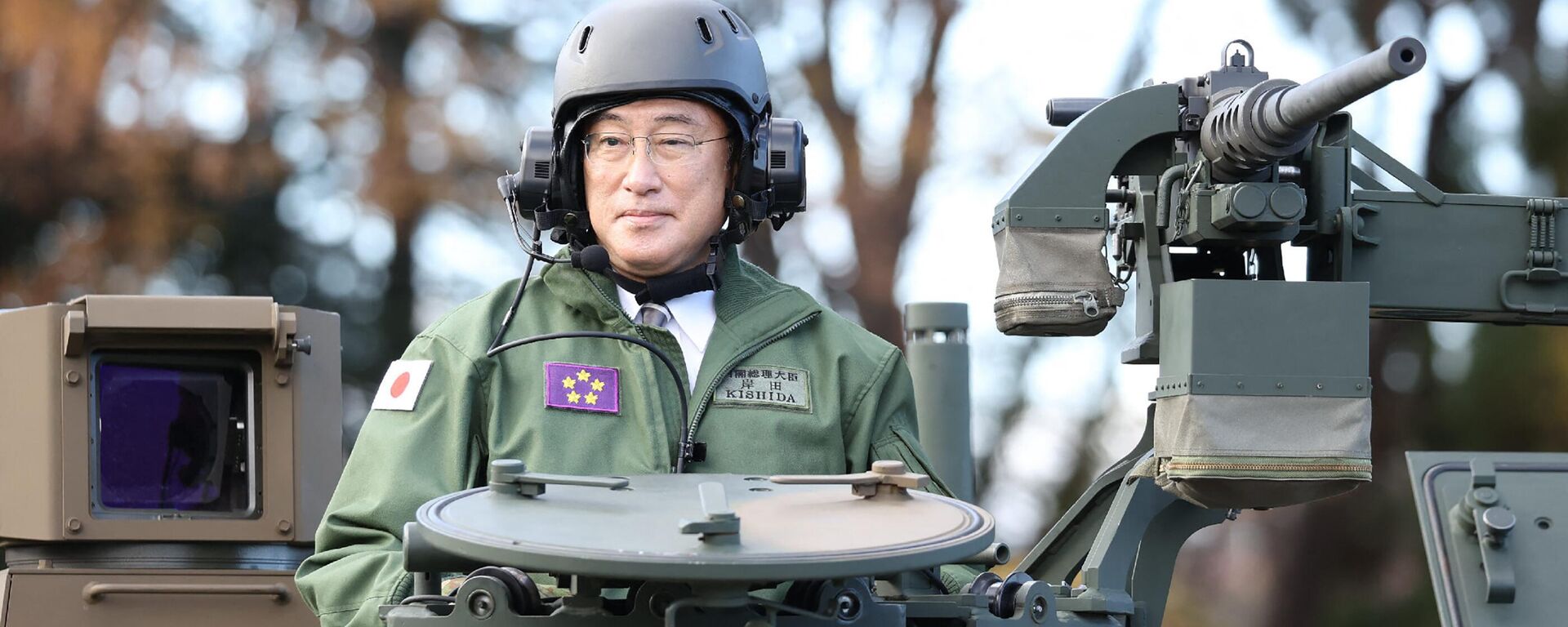
6 November 2023, 11:12 GMT
Next, the report rationalized the need to set up a new nuclear state on Russia’s border, regurgitating the traditional US-fueled claims of Japan being threatened by neighboring countries. An increasingly assertive China, North Korea with its expanding military clout, and Russia were all cited as reasons why US guarantees of protection could ostensibly no longer serve as a foundation for Japan’s security. The author posed the simple question: “Would America be willing to risk the destruction of Los Angeles to protect Tokyo?” Furthermore, he underscored that Washington has demonstrated many times that it would pursue its national interests even if it damages the interests of its allies.
“The United States has proved to be impetuous and sanctimonious, canceling agreements with Russia, invading Iraq and Afghanistan, and intervening in Libya with little consideration of the long-term consequences,” emphasized the report. Japan should not have to be relying on “decisions of impulsive and unreliable leaders in Washington,” the author of the report stated.
At this point, it should be noted that Russia, as a member of the United Nations Security Council and a nuclear power, is strictly guided by the tenet that a nuclear war cannot be won and must never be fought.
Russia’s nuclear doctrine clearly
forbids the preemptive use of nuclear weapons, stating they are regarded “
exclusively as a means of deterrence, their use being an extreme and compelled measure.”
Another "vulnerability" cited in the report was
the dispute over the Senkaku Islands in the East China Sea, claimed both by Japan and China (Beijing refers to them as the Diaoyu Islands).
After World War II, the islands were controlled by the United States and then handed over to Japan in 1972. Beijing disagrees with the decision, recalling that the islands were marked as Chinese territory on Japanese maps from 1783 and 1785. The conflict escalated in 2012 after the Japanese authorities bought out five islands from a private Japanese owner.
The report comes as Japan has been beefing up its military,
bolstering rapprochement with NATO, while echoing the same "threat" allegations that Washington typically conjures up. Boosted defense is ostensibly needed to
"deter" China, the Democratic People's Republic of Korea (DPRK), and, possibly, Russia. Tokyo has also been spending more and more money on American weapons, while filling Washington's coffers.
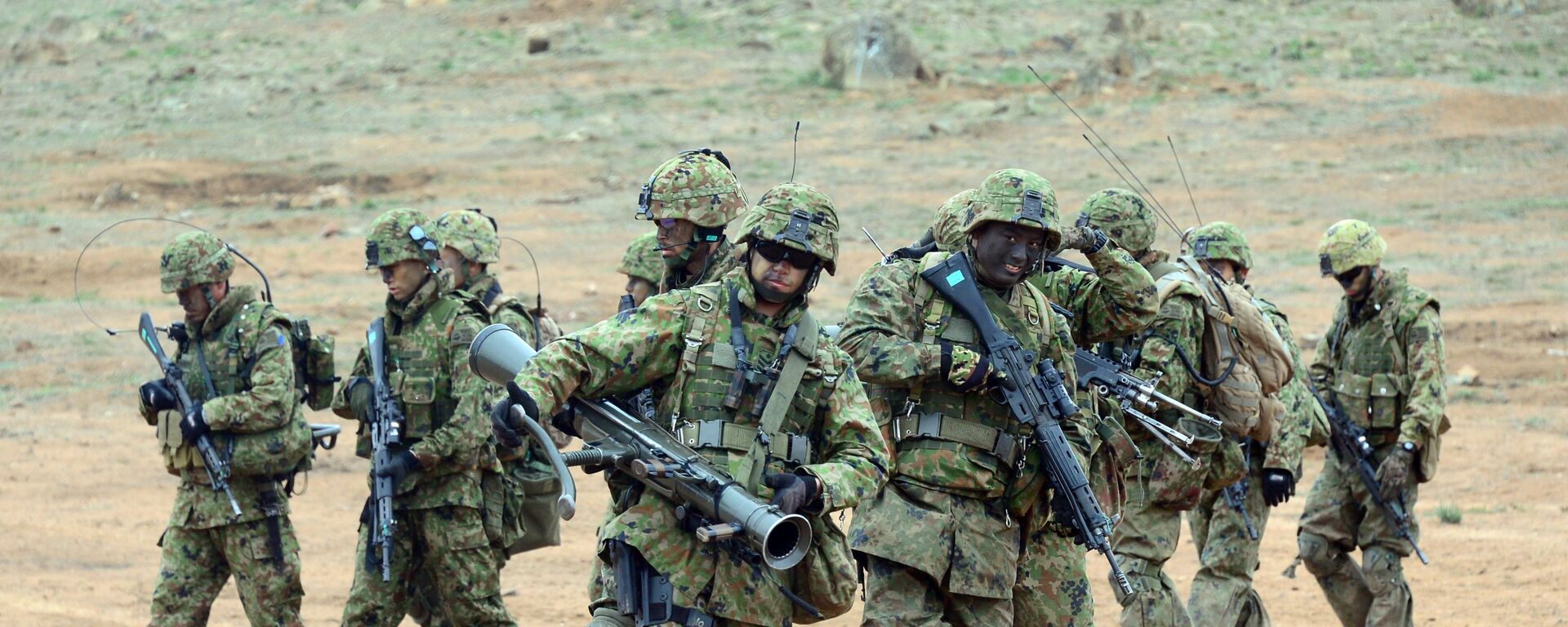
5 September 2023, 08:27 GMT
Article 9 of Japan's war-denouncing constitution prohibits offensive actions by the nation's military. However, a succession of Liberal Democratic Party governments – including the present one led by Prime Minister Fumio Kishida – have sought to
rewrite that charter to loosen the restrictions on arms exports, allow overseas deployments in support of US-led military interventions, etc. In December 2022, Japanese Prime Minister Fumio Kishida’s government approved three policy documents – the
National Security Strategy (NSS), the
National Defense Strategy, and the
Defense Buildup Program – which envisage doubling the nation's
defense spending within the next five years. For fiscal year 2024, Japan's Defense Ministry has requested the largest
defense budget in its history, worth a whopping
$53 billion, 12 percent higher than in 2023. Furthermore, the United States has also boosted trilateral security cooperation with Japan and South Korea.
The increasing militarization of Japan over claims of having been threatened by neighboring countries has been slammed by
North Korea, with the DPRK's media slamming it as a "smokescreen" to justify Tokyo's intention to become a major military power. The burgeoning trilateral military alliance uniting Washington, Tokyo, and Seoul was described as fraught with the prospect of World War III by North Korea’s Rodong Sinmun.
Moscow has also warned of the "confrontational nature" of political and military interaction between Washington, Tokyo, and Seoul, aimed at escalating the situation in the Asia-Pacific under the pretext of "response to global challenges and threats."
Nikolai Patrushev, secretary of the Russian Security Council, previously warned of the militarization of Japan with the support of the United States, with the country's self-defense forces being transformed into a full-fledged army capable of attacking, in a "gross violation of the results of the Second World War."
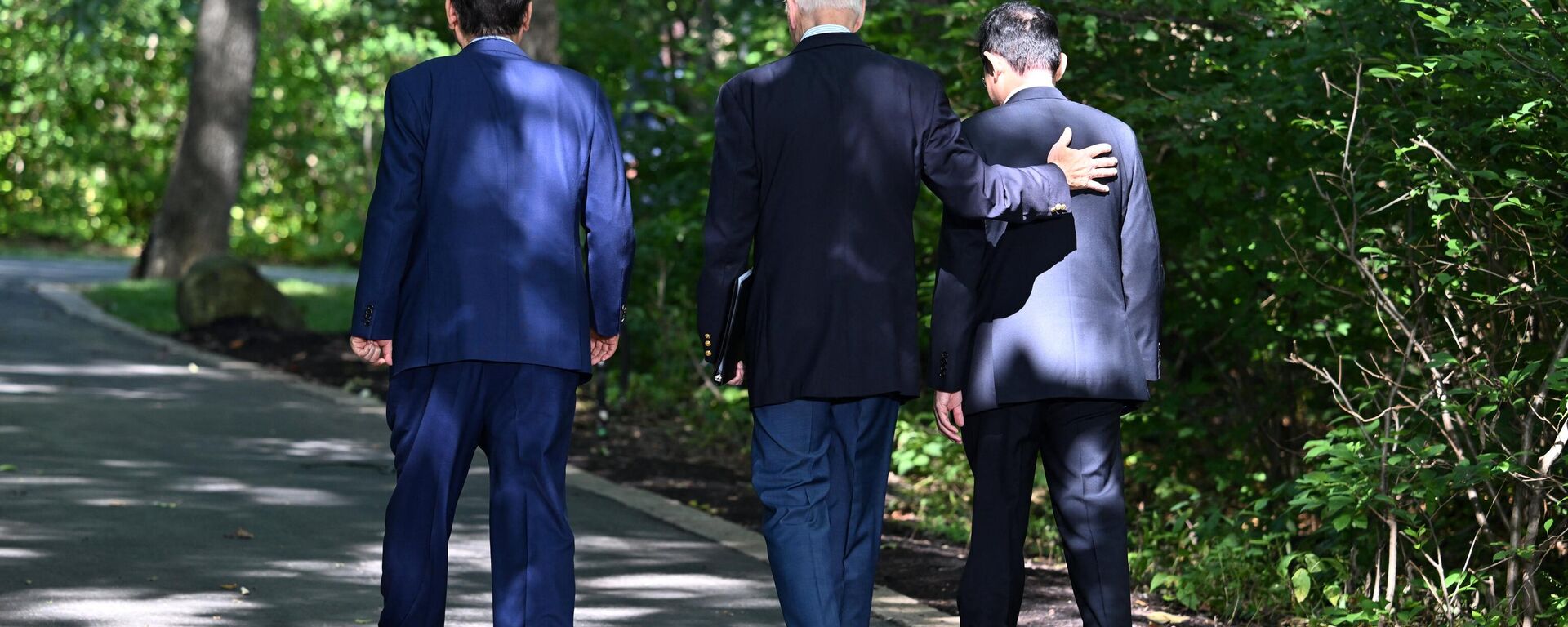
5 November 2023, 15:39 GMT
